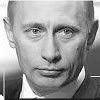- 27 Nov 2006 16:39
#1057272
Source
Ukraine Marks 73rd Anniversary of Famine
By MARA D. BELLABY
The Associated Press
Saturday, November 25, 2006; 4:24 PM
KIEV, Ukraine -- Holding candles and standing silent, thousands massed on a fog-shrouded square Saturday to mourn 10 million Ukrainians killed by a famine orchestrated by Soviet leader Josef Stalin _ an ordeal many insisted must be recognized as genocide.
Some 33,000 people died every day during the 1932-33 famine, wiping out a third of Ukraine's population in a calamity known here as Holodomor _ Death by Hunger. Cases of cannibalism were widespread as desperation deepened. Those who resisted were shot or sent to Siberia.
Ukraine's President Viktor Yushchenko, left, is seen during a commemorative ceremony dedicated to the victims of the Soviet-era famine in the village of Sehiyvka, in the Chernihivsky region of Ukraine, Friday, Nov. 24, 2006. On Saturday Ukraine will mark the 73rd anniversary of the Great Famine, a tragedy orchestrated by Soviet dictator Josef Stalin that continues to haunt and divide the nation of 47 million. Yushchenko wants the deaths of an estimated 10 million recognized as genocide, but Russia has warned Kiev against taking that step. (AP Photo/Presidential Press Service, Mykola Lazarenko, Pool) (Mykola Lazarenko - AP)
"I do not ask _ I demand that the Ukrainian parliament recognize Holodomor as genocide," President Viktor Yushchenko told the crowd on Mykhaylivska Square in a short address followed by a minute of silence and the tolling of bells.
Stalin provoked the famine to coerce peasants into giving up their private farms and joining agriculture collectives being formed across the Soviet Union.
Villages were ordered to provide the state with set amounts of grain, but the demands typically exceeded crop yields. As village after village failed to meet their quotas, officials seized all food and residents were barred from leaving _ condemning them to starve.
Farmers in Ukraine, which was the breadbasket of the U.S.S.R., fiercely resisted and bore the brunt of the man-made disaster.
Russia's government has warned the leaders of this former Soviet republic against using the term genocide, saying the event should not be "politicized." Some Ukrainian lawmakers agreed, proposing it be termed a "tragedy" instead.
The Kremlin argues Stalin's campaign did not specifically target Ukrainians and also affected Russians and Kazakhs. But historians say the overwhelming majority of victims were Ukrainian, and the famine coincided with Stalin's effort to crush growing Ukrainian nationalism.
Yushchenko appealed to Russia to "stand by our side" and recognize the mass starvation as genocide. "With this high example, demonstrate the human empathy that is inherent to the Russian people," he said.
"How can it be called anything but genocide," said Kateryna Kryvenko, 78, who recalled crying at the feet of Soviet officials as they ransacked her family's village home, carting off what little food her family had managed to hide under a floorboard. She said authorities took everything, and her father and three brothers and sisters died.
During the Soviet era, the mass starvation was a closely guarded state secret, but information trickled out over the years.
Ten nations, including the United States, recognize the famine as genocide, a crime under international law defined as the deliberate and systematic destruction of a racial, political or cultural group.
Ukraine's parliament speaker, Oleksandr Moroz, said Saturday that he supports recognizing the mass starvation as genocide and said the president's bill calling for that designation would come before parliament this week.
Some lawmakers from Prime Minister Viktor Yanukovych's Russia-leaning Party of Regions suggested adopting a more moderate term, but party member Taras Chornovil predicted the president's version would pass.
Yanukovych joined Yushchenko in Saturday's commemoration, which included a silent procession by people carrying white banners representing every Ukrainian region. Black ribbons hung from the banners.
"The tragedy is of such a scale that it is hard to even imagine," said Oksana Yatsyuk, 18.
Source

























 - By Potemkin
- By Potemkin - By wat0n
- By wat0n